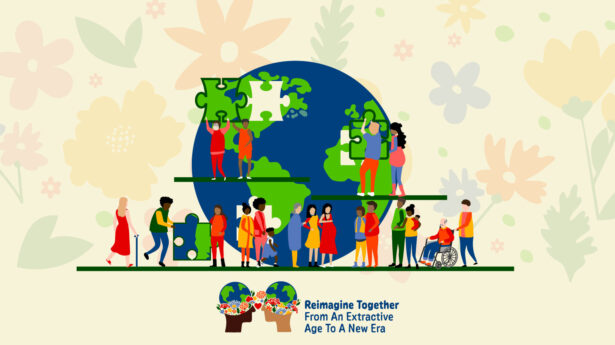The Unitarian Universalist Service Committee advances human rights through grassroots collaborations.
October 7, 2016, Rights Reading
October 7, 2016
Our weekly roundup of what we’re reading: a few select articles from the front lines of human rights that we don’t want you to miss.
1. “Antonio Guterres, former Portugal prime minster, next United Nations secretary general” Pamela Falk, CBS News, October 5, 2016
There’s promising news in the election of Antonio Guterres as the next U.N. secretary general. He has ten years of experience as the international organization’s high commissioner on refugees, serving from 2005 through December 2015. Electing a new secretary general who has led what Falk’s article describes as “the U.N. agency perhaps most in the hot seat” may signal the world body’s strong commitment to the world’s refugee crises at a time when it is most needed.
Guterres has other credentials human rights activists might find encouraging as well. While he taught physics at the University of Lisbon, he began his political career by working with poor people in the city’s slums. When Portuguese dictator Antonio Salazar resigned in 1968, Guterres said he became a “revolutionary,” and joined the country’s Socialist Party in 1974. That year, when Marcelo Caetano, Salazar’s successor, was overthrown, Guterres began his career in government, eventually becoming prime minister in 1995.
Guterres was elected U.N. secretary general after months of straw poll voting, emerging as the winner among 10 final candidates. He ranks ending the current conflict in Syria as one of his highest priorities. “I do believe that now is the height of common interest to put an end to this war, and it’s my hope that building bridges, convening goodwill, bringing people together, is something that will help to produce a positive result.”
There is still time to add your support for refugees from Syria and other countries seeking refuge here in the United States by writing your own senators and representative to urge them to defy hate speech, fully fund programs to admit refugees as authorized for FY 2017, and ensure that the United States will join Secretary-elect Guterres by standing up for human rights.
2. “Nepal Must Go Beyond ‘Raising Awareness’ to Tackle Root Causes of Gender Inequality,” World Politics Review, October 5, 2016
The editors of this publication make the excellent point that the best way to create real change for marginalized people is to empower them to lead efforts to solve their own problems. Observing that women in Nepal are still held back by traditions that limit their ability to free themselves from male-dominated family structures, prevent them from working for themselves as independent citizens, and fail to end child marriage, quotes from their interview with Claire Naylor, founder of the organization Women LEAD, are in harmony with the work being done by women in UUSC’s partner organizations in the country.
On women’s rights in general:
“Until women hold key positions of influence and decision-making authority across all sectors of Nepal, the status of women will continue to be an issue that is analyzed rather than actualized.” And, on child marriage: “So, how can the international community support girl-led change? It can put its money where its mouth is by believing in them enough to invest in their ideas, and then getting out of the way.”
3. “Paris climate agreement to take effect Nov. 4,” Michel Astor, Washington Post, October 5, 2016
No matter the outcome of the U.S. presidential election on November 8, there will be at least some good news early next month. In what President Barack Obama calls, “a turning point for our planet,” the Paris agreement crossed a critical milestone toward passage and will take effect on November 4.
The Paris agreement is aimed at slowing the rise in global temperatures by requiring governments to commit to reducing emissions. The agreement’s specific goal is to limit this rise in global temperature to below two degrees Celsius, or 3.6 degrees Fahrenheit. Participating countries are required to submit plans for doing their part toward reaching this goal, although their commitments are non-binding. However, these countries are required to report on their emissions and progress toward the agreement’s goals, and to update their plans every five years to continue making progress toward their stated goals.
Observers noted the relatively short time between informal approval and the agreement taking effect, possibly resulting from a desire to complete the process before the terms of U.N. Secretary General Ban Kee Moon and U.S. President Obama – both major supporters of the Paris agreement – come to an end early in 2017.
UUSC has a long tradition of understanding the relationship of natural disasters and climate justice with human rights. In the Philippines, we began working with local partners after Typhoon Haiyan devastated the nation in 2013 and stayed there, supporting the Trauma Resource Institute’s work to build long-term resiliency among affected people. Read about these efforts here. Through our continued partnerships in the country, we continue to monitor recent threats to human rights resulting from the brutal policies of President Rodrigo Duterte.
A similar sequence of UUSC humanitarian aid followed by support for human rights advocacy can be found in our work in Haiti. After helping marginalized children affected by the 2010 earthquake, our local partners launched new efforts aimed at stateless children deported there from the Dominican Republic. This week, a new environmental crisis threatens many more in the aftermath of Hurricane Matthew. Click here to learn how you can help.

